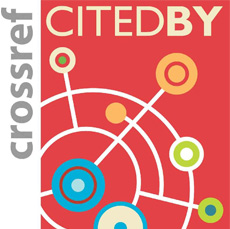ISSN : 1226-4946(Print)
ISSN : 2288-5412(Online)
“The man who suffers and the mind which creates”: Arthur Hallam, W. B. Yeats, T. S. Eliot, and “genuine inspiration”
James Pethica teaches Irish and Modern British literature at Williams College, Massachusetts, and is currently at work on the authorized biography of Lady Gregory. His publications include Lady Gregory’s Diaries 1892-1902, Last Poems: Manuscript Materials in the Cornell Yeats series, and Yeats’s Poetry, Drama and Prose: A Norton Critical Edition.
Abstract
As a young poet, Yeats believed that individual imagination was the paramount source of inspiration. His Romantic convictions were reinforced by Arthur Hallam’s claim that “pure” poetry came from the “impression on the senses of certain very sensitive men.” But he quickly recognized that a focus on the self might lead to solipsism. As an Irish Nationalist, too, he increasingly wanted his writing to engage directly with the world. Anxieties about where inspiration comes from, and whether art is merely autotelic, intensified in his work of the later 1890s, and led him to propose that genuine creativity required transcending the egotistical by accessing “universal thought.” He refined this proposition in his theorizations of the Mask and in A Vision, generating a neo-Romantic conception of selfhood as mobile, porous and shaped by the artist-mage’s powers. T. S. Eliot famously conceived of poetry as “not the expression of personality, but an escape from personality.” Yeats’s later formulations of poetic inspiration resolved the key tensions that had troubled him by acknowledging the artist as necessarily both finger and clay. In this early embrace of a Modernist notion of unstable, multiple selfhood, Yeats paradoxically became more fully a Romantic.
“‘고통 받는 인간과 창조하는 마음’: 아더 홀럼, W. B. 예이츠, T. S. 엘리엇, 그리고 ‘순수한 영감’”
제임스 페디카
제임스 페디카는 매사추세츠 주 윌리엄 칼리지에서 아일랜드와 영국 모드니스트 문학을 강의하며, 현재 레이디 그레고리의 공식적 자서전 집필을 하고 있다. 그의 저서는 『레이디 그레고리 일기 1892-1902』; 코넬대 예이츠 시리즈 『마지막 시편: 원고』; 그리고 『예이츠의 시, 드라마, 산문: 노튼 평론집』, 등이 포함된다.
초록
젊은 시인 예이츠는 개인의 상상력이 영감의 제일 중요한 원천으로 믿었다. 그의 낭만적 확신은 아더 홀럼의 주장에 힘을 받았는데, 그의 주장은 “순수” 시는“어떤 극히 예민한 사람들에 대한 인상”에서 나온다는 것이었다. 그러나 그는 자신에 대한 집중은 유아론으로 귀착된다는 것을 즉시 깨닫는다. 그는, 또한, 점차적으로 아일랜드 민족주의자로서 자신의 글이 세상과 직접 연결되길 원한다. 영감이 어디서 오는지, 예술은 자기목적적인지, 하는 관심들은 1890년 후기 작품에 강화되며, 이어서 순수한 창의성은 “보편적 사상”에 접근함으로써 자기중심적인 것을 초월할 수 있다고 제안하기에 이른다. 그는 이 제안을 그의 『환상록』에서, 마스크 이론으로 다듬고, 유동적이고 투과성이 있는, 마법사-예술가가 만드는 자아라는 신낭만주의 개념을 만들어냈다. T. S. 엘리엇은 시를 “개성의 표현이 아니라 개성에서의 탈출”로 인식한 것으로 유명하다. 예이츠의 시적 영감의 후기 개념들은 예술가를 필연적으로 흙과 손가락을 인정함으로써 그를 괴롭혀왔던 주요 긴장감을 해소했다. 불안정한 다중적 자아라는 모더니스트의 개념을 초기에 수용함으로써, 예이츠는 역설적으로 보다 더 낭만적인 작가가 된다.










